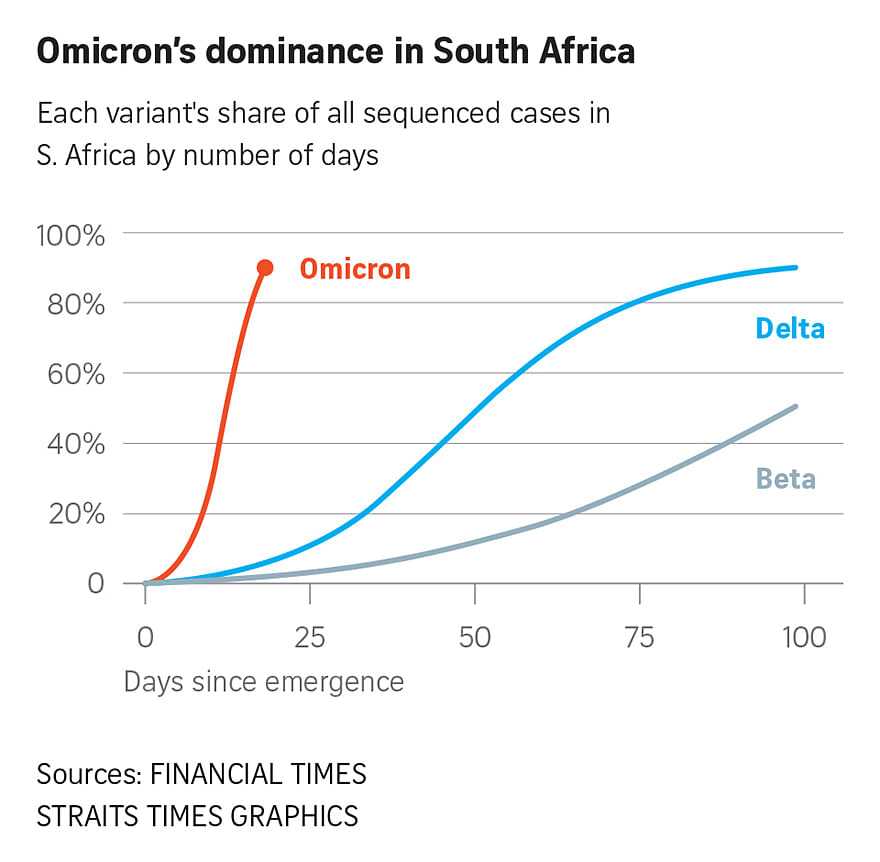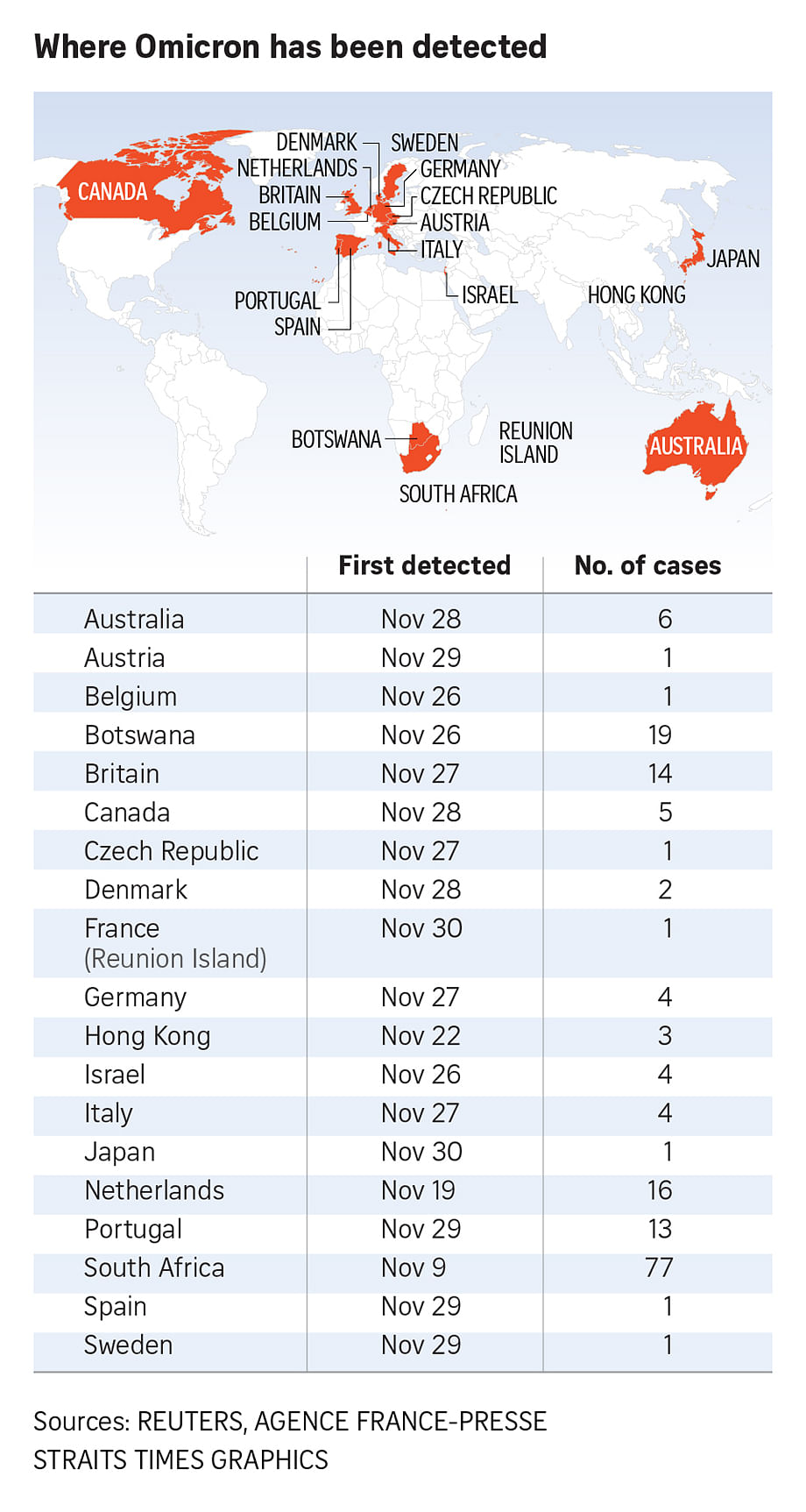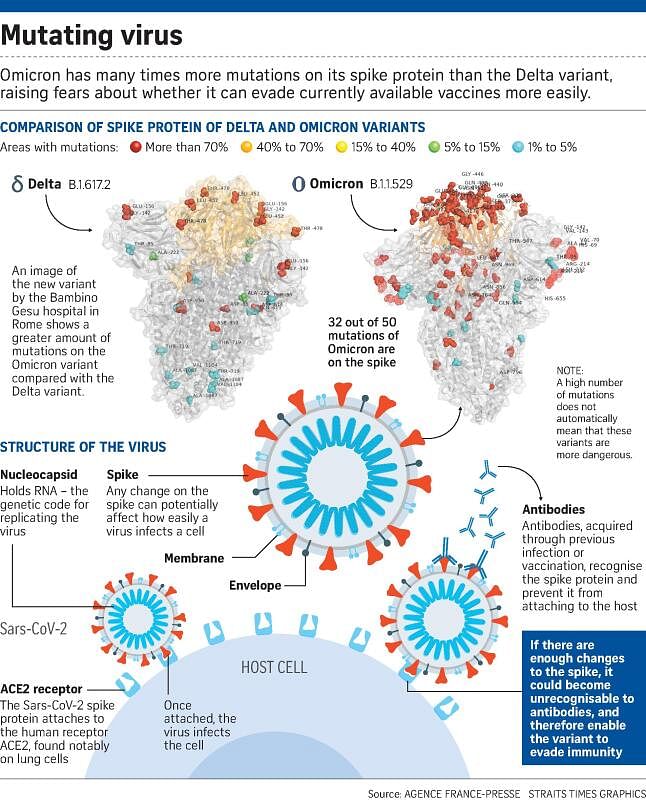SINGAPORE - The Covid-19 Omicron variant has a large number of gene mutations that has not been reported in a single viral variant before.
So far, scientists have seen 32 mutations out of 5,000 genes on the spike protein, and this gives them reason to believe that Omicron may have fairly different characteristics from previous Covid-19 variants, Health Minister Ong Ye Kung said at a virtual press conference by the multi-ministry task force tackling Covid-19 here on Tuesday (Nov 30).
Omicron's 32 mutations in the spike protein is about double that of the Delta strain, which now dominates Covid-19 infections around the world.
"This unknown enemy is indeed a lot more transmissible than what Delta is currently. Omicron could spread much more widely than Delta. Whether it will dominate the other variants, just like how Delta had done previously, is a possibility that we need to be alert to and watch out for," Mr Ong said.
The spike protein is an important part of the virus that allows it to bind to human cells and facilitate infection of the cells. So a change in the spike protein may change the ability of the virus to infect cells and cause adverse effects, Singapore's director of medical services Kenneth Mak said at the press conference.
The spike protein is also part of the virus which some diagnostic tests, vaccines and monoclonal antibodies are designed to recognise. Hence, mutations in the spike protein may affect the ability to detect the Omicron variant and counter it, Associate Professor Mak added.
Given the extensive changes in the genetic make-up of the Omicron variant, the task force believes it to be a distinct and separate variant in itself, and not simply an offshoot of other variants of concern (VOC), Prof Mak said.
One big concern is that the new variant might reduce vaccine effectiveness because of its large number of mutations.
Most vaccines focus on "teaching" the body to generate antibodies that neutralise the virus' spike protein, which latches on to human cells. But many of the new variant's mutations are in regions of the spike protein that antibodies recognise, raising concern that this may impact vaccine efficacy.
Omicron was classified the fifth VOC, the fastest any emerging variant has shot to the top of the table. The other four - Alpha, Beta, Gamma and Delta - took between two months and seven months from emergence to being declared a VOC.
The World Health Organisation (WHO) classifies Covid-19 variants into three categories - variants of concern, variants of interest and variants under monitoring.
A variant of concern is one that shows evidence of higher transmissibility and virulence, leading to more severe disease that requires hospitalisation and causes death.
This new strain found in South Africa was first reported to the World Health Organisation (WHO) on Nov 24. WHO said the first known confirmed infection was from a specimen collected on Nov 9. Cases have been detected in neighbouring Botswana and as far away as Hong Kong.
Omicron has since spread to more than a dozen countries, many of which have imposed travel restrictions to try to seal themselves off.
Though no Omicron-linked death has been reported, further research is needed to assess its potential to escape protection against immunity induced by vaccines and previous infections, WHO said on Monday.















